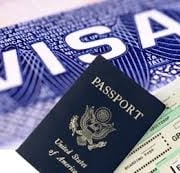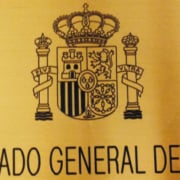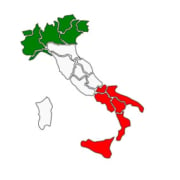Preparing to Enter A Foreign Country
So, as you know, I am from the United States. I have been out of the country before, but never for too long of a period of time (no more than 4 months at a time). While I intend to visit some places, both domestically and internationally, for a short amount of time just to take in the culture and to be inspired by my new surroundings, I am thinking that for other personally special locations (such as Africa and Japan), 90 days just won’t be enough.
In order to travel to a foreign country (for 3 months or less), of course you need the obvious Passport. But if you are planning to travel for a period longer than 3 months (or 90 days), you must obtain a long-term/stay travel visa. The longer you want to stay in another country, the more difficult the process is, and the more barriers you will face when trying to obtain your visa. Now there are many types of travel visas, but I will shortly discuss the most common:
- Residence – allows the holder to reside in place of travel without undertaking any type of work or professional activity; most commonly, applicants get married and attempt to apply for citizenship.
- Student/Study – allows the holder to remain in place of travel in order to pursue courses, studies, research or training programs; this visa requires that you choose a foreign institution and enroll in your classes and make an advance FULL PAYMENT. Students who are studying for more than 180 days will be given a 90-day student visa to enter Spain, and once in Spain, the student must go to the nearest police station and “exchange” their 90-day visa for a residency permit.
- Work/Professional – allows the holder to undertake work or professional activity; applicants must obtain a notification of work and residence permit approval in advance.
- Au Pair – allows the holder to reside in place of travel with a host family, while caring for their children (in a nanny-like capacity) and being in pursuit of some sort of academic/research studies. Some countries do not recognize this visa and encourage you to consider applying for the study visa even if you choose to Au Pair for a host family.
- Tourist/Transit/Business (typically short stay) – applicants should show proof of a round trip airline ticket PAID IN FULL, a detailed hotel reservation, most recent 3 bank statements, a major credit card and a statement exhibiting the designated card balance, and a letter from an employer exhibiting purpose of visit or an income tax return if you are self-employed.
Here are some major and useful tips:
- Do your research. Based on your home country and the foreign country you intend to travel to, there are guidelines and regulations specific to every countries entry requirements. Do not hesitate to ask questions at the foreign countries’ consulates located in your home country. It is better to ask a question when you are unsure, than to guess and then walk into the Consulate on the day of your visa appointment and get turned away. Believe me…it’s an embarrassing and frustrating experience!!
- For the most part, every long stay visa requires that you obtain a medical certificate (a document issued by your physician stating that you are in good health and not a threat to the public based on the 2005 World Health Organization). Here is an example for Spain: http://eap.ucop.edu/Documents/_forms/1112/spain/Medical_certificate.pdf
- Also, for long stay visas, all applicants (but don’t quote me on this as all countries have different requirements) must receive a livescan/DOJ clearance and Apostille/authentication. So you know how you get a livescan for your job in your home country? Think of applying for a visa like applying for a job. They want to know where you have been and if you are prone to stir up any trouble in THEIR country. So this step can be a stressfully long process. First, you have to go to a local facility that offers Livescan Fingerprinting. Make sure you use the correct document (Form BCIA 8016) based on the type of visa you are applying for. Then you wait about 1-2 weeks for your “results” to be mailed to you. Next, you email a copy of your results to ‘visa-immigration@doj.ca.gov‘ (see Step#4), and wait about 1-2 weeks for them to mail you an official document with all the right signatures (from the Criminal Identification Specialist for the Attorney General). Now, you have to visit the Secretary of State (or you can mail, but I highly suggest you walk in and spare 1-2 hours of your day, versus waiting another 1-2 weeks for the document to be mailed back to you) to get your document notarized for authentication (aka an Apostille – and DO NOT remove staple as it breaks seal and makes the document invalid). And lastly, the document needs to be translated (I suggest searching for a foreign language translating notary) to the native language spoken in the country you intend to visit. So as you can see, this process can take up to 3-6 weeks, so do not procrastinate and do not sleep on how important this document is!!
- You must also be able to prove that you can support yourself financially. So whether you have grants/scholarships/financial aid, or your host family provides you with a notarized letter stating that they will cover your room/board and any costs incurred from unforeseen emergencies that might occur, or you are able to prove the funds that are in your bank account. Either way, don’t think another country is going to welcome you with open arms as a drifter with no income and with intentions to stay longer than 90 days.
- Visa Costs can rack up to about $255+ (depending on your home country and destination) = Livescan Fingerprint ($50) + SOS Certification/Apostille ($25) + Pre-Postage USPS Return Mailing Envelope for Passport ($20) + Visa Application Fee Money Order ($160)
- Do exactly what it says on the visa requirements page for your chosen place of travel AND SOME!! And here is a helpful tip based on personal experience about a year ago… For some countries, it says that you cannot apply for visa more than 3-4 months before “date of departure” and no less than 1 month. But to them, “date of departure” may translate as “date that program/classes begin”. Can we all agree that “departure date” and “program date” are 2 completely different things? The reality is that everyone makes mistakes, but under these circumstances, rules are rules, and even if the Consulate does not display their information accurately, they cannot process your application and you will have to hope that another appointment is made available (which is very unlikely as appointments book up 3 months in advance). For more personal experiences, try searching for the Consulate you intend to apply on Yelp.com and check out reviews from other applicants.
- Remember, you want to schedule your visa appointment 6-7 months (in advance) before you are expected to begin your work or study program. So if your job or classes begin in August, you want to schedule your April visa appointment in January.
- Be warned that you may have all of your documentation (that you know of). But something may “go wrong” during your appointment, and you may be told that something is missing or you have “too many breaks” in your class schedule or your “employer” didn’t sign ALL the right documents. And you may go in thinking you were going to receive a 6 month visa and only get approved for 4. Keep this “worst case scenario theory” in mind before you make any life changing decisions (like renting your apartment out to someone else or spending money on expenses that are non-refundable) or make any big promises to individuals in your country of travel. But also, if the Consulate begins processing your application, they may take your payment and passport and instruct you to bring back any missing documents, and you will not need an appointment to return after they hold on to your passport. In this case, you just want to make sure you retrieve all the requested documents in time for them to mail your passport back to you in the expected 3-4 weeks. Just a heads up. Just want you to think smart and don’t set yourself up for disappointment. So just make sure you are thorough in all aspects.
- Useful Sites for Travel Preparation:
http://www.usembassy.gov
http://travel.state.gov
http://www.transitionsabroad.com
http://www.flu.gov
Applying for a visa is a major process. Come on…think about it. Imagine when you are just trying to move to another state, you have to get a new I.D. and change your car plates and complete all types of documentation to show you are now a resident of another state in your own home country. So entering another country is 5 times the extreme. So do not take the process for granted. Do not underestimate how serious (some) other countries are about keeping you OUT of their country.
Set a goal. Do your research. Establish a plan. Consider your budget. And plan in advance. Change is already an overwhelming and scary thought in itself. So you want to pace yourself to ensure you are in good spirits and have high hopes (optimism) throughout the process.
If you have any visa questions please ask in the comment area below, as I have experience with multiple countries. And please share your experiences also. Unexpected experiences, such as my example in #6 above, are what people want and need to know.
Thank you for reading. I am looking forward to learning about your visa experiences.
ATENCIÓN: Por favor, utilice este enlace, Free Translation, para traducir mis posts. Una vez que usted visite el sitio traducción, se encuentra la “lengua” (con la imagen del mundo junto a él), en la parte superior derecha, para elegir el idioma que prefiera. Gracias.












Leave a Reply
Want to join the discussion?Feel free to contribute!